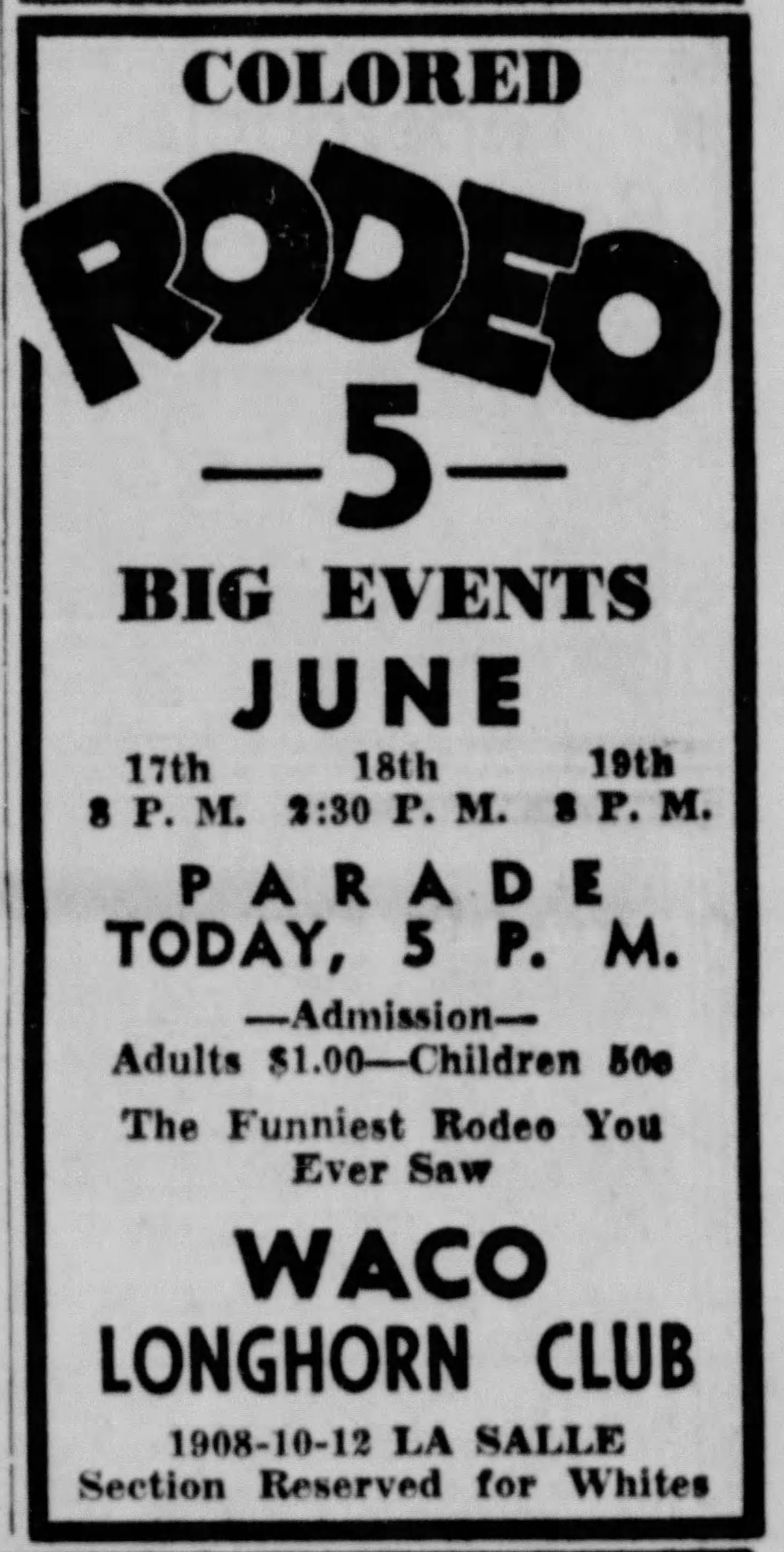Waco Loughorn

1950 aerial view of the Waco Traffic Circle (bottom left), drive-in movie theater, and Waco Longhorn Club rodeo grounds (top right).
Known Name(s)
Waco Longhorn Club
Address
19th & LaSalle Waco, TX
Establishment Type(s)
Fairground
Physical Status
Demolished
Description
Rodeo arena with bleachers along both long sides and stock pens at the far side.
Detailed History
The Waco Longhorn Club was the first horse club created in central Texas. It was organized on October 27th, 1941, after a Waco Tribune-Herald newspaper ran a story calling for all horse-minded folks to gather at the Elite Cafe at the Circle, and its initial rodeo was held at the rear of the cafe on November 11, 1941. The club moved to 1914 LaSalle Avenue, and hosted many rodeos, horse shows, stage shows, the original Heart O-Texas Fair, and circuses. The club charged $250 a day for a circus and $1,250 a week for a carnival.
The Waco Longhorn Club held separate rodeos for Black and white riders. Weekend rodeos with Black cowboys began in Texas in the late 1940s, with the formation of the Negro Cowboys Rodeo Association in 1947 by a group of East Texas Black ranchers and cowboys. The Waco Longhorn Club had Black rodeos at least as early as 1950. According to a 1950 Waco News Tribune article, the club kicked off a three-day Black rodeo with a street parade that started at Walker’s Auditorium in East Waco, went down Elm Avenue across the river through downtown along Washington Avenue, before crossing over to the rodeo grounds on LaSalle Avenue. Admission to the Black rodeo was $1 for adults and 50 cents for children, and snacks and soft drinks could be purchased during the show. Besides having a real rodeo with serious competition, the Black rodeo also entertained, being advertised as “the funniest rodeo you ever saw” and promising attendees hilarious entertainment by Black cowboys and cowgirls.
Club membership started to decline after 1953 when other riding clubs organized. It moved to a couple of other places before relocating to 4721 West Waco Drive, where it had 1,800 elevated seats around a standard-sized arena, rodeo chutes and pens, and a chain link fence.





